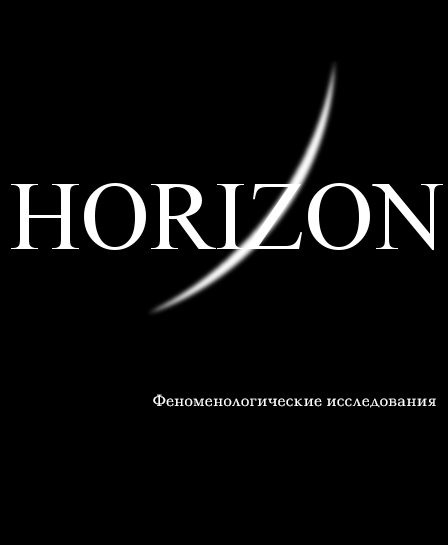- 19 April 2020
 |
Early Phenomenology in Central and Eastern Europe. Editors: Witold Płotka, Patrick Eldridge |
|
This book presents the origins of Central and Eastern European phenomenology. It features chapters that explore the movement's development, its most important thinkers, and its theoretical and historical context. This collection examines such topics as the realism-idealism controversy, the status of descriptive psychology, the question of the phenomenological method, and the problem of the world. |
- 06 April 2020
Call for papers
 |
“Horizon. Studies in Phenomenology”—Vol. 10, No. 2, 2021 Guest Editors: Ronny Miron & Simona Bertolini |
|
Edith Stein (1891-1942), Hedwig Conrad-Martius (1888-1966), and Gerda Walther (1897-1977) share at least three common traits. Firstly, they were Edmund Husserl’s students and came under the influence of the realist phenomenology of the so-called “Munich and Göttingen circles”. Stein and Conrad-Martius studied with Husserl and Adolf Reinach in Göttingen; Walther, instead, took courses with Husserl in Freiburg and studied with Alexander Pfänder, one of the main proponents of the phenomenological tradition in Munich. Secondly, they had to abandon the project of beginning an academic career, as, for a woman, this was not an easy goal to fulfill at that time. Thirdly, they developed phenomenology in a personal way, regarding both the conception of phenomenological method and the field of objects this method addresses. Stein devoted herself to the theoretical project of connecting Husserl’s rigorous description and Thomas Aquinas’ metaphysics, with particular regard to the structure of the human person; Conrad-Martius established a relationship between ontology of real being and science, by elaborating an original philosophy of nature; Walther dedicated herself to diverse subjects, such as ontology of social communities, phenomenology of mysticism, mental illness, and parapsychology. These philosophies have received increasing attention in the last years, in particular in connection with the role of metaphysics in phenomenological inquiry, the profundity of human soul, the natural origin of man, and the religious experience.
Guidelines for submissions can be found on the official site of the journal: over here For reference, you may consult other published articles from the journal: over here The articles can be written in English, German – both languages are acceptable (acceptable volume of an article should have 30.000-50.000 characters including spaces, footnotes, references, abstracts and key words Deadline for submissions: February 1, 2021 Deadline for decision: April 30, 2021 Deadline for publication: December 30, 2021 Please send your formatted submissions to: This email address is being protected from spambots. You need JavaScript enabled to view it. & This email address is being protected from spambots. You need JavaScript enabled to view it. |
- 19 November 2019
 |
«ФЕНОМЕНОЛОГИЯ СЕГОДНЯ. АКТУАЛЬНЫЕ ПРОБЛЕМЫ» 10:00-18:00 СПбГУ, Менделеевская линия, д. 5, ауд. 108 Модераторы: Наталья Артеменко, Андрей Паткуль |
- 21 May 2019
|
|
АНОНС ТЕОРЕТИЧЕСКОГО СЕМИНАРА ПО ФЕНОМЕНОЛОГИИ Уважаемые коллеги!
С докладом выступит:
|

This work is licensed under a Creative Commons Attribution-NonCommercial 4.0 International License.

|
|
|
|
|

|
|
|
|
|

|
|
|
|
|
|
|
|
|
|
|
|
|
|
|
|
|
|
|
|
|
|

|
|
|
|
|
|
|
|
|
|
|
|
|
|
|
|
|
|
|
|
|
|
|
|
|
|
|
|

|

|
Social networks:





